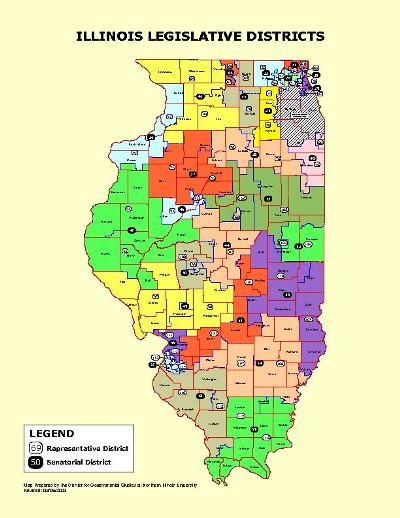The Times-Observer did a nice editorial piece in response to my post-election Constitutional Convention reaction.
Before getting into the meat of it, let me explain my most-criticized comment, which was: “Well, I don’t want to hear any complaints about state government from anyone who voted against the Con Con. You had your chance to improve things, and you blew it.” Some have taken this to mean that I want to somehow limit their free speech to complain about state government. Not so. Complain away. I just said I don’t want to hear it, which is another way of saying you’ll get no sympathy from me.
Now, as for the arguments against the Constitutional Convention (“con-con,” for short), here’s the thing I don’t understand. What harm would it have done?
According to the Times-Observer, “we cannot trust anything coming out of Springfield”; they then go on to compare a con-con to the electricity deregulation debacle. The Peoria chapter of the League of Women Voters’ spokesperson said, “Special interests, current political dysfunction in Springfield and party politics may gain control of the delegate election/selection process, as well as deliberations. Results may be unrepresentative of voters’ concerns.”
These statements indicate to me that these people evidently do not know how a con-con works. Delegates to the convention cannot be legislators. There would be a separate election of delegates. Furthermore, the proposed constitution that would come out of the con-con would have to be approved by the voters. That’s why it’s not anything like the electricity deregulation debacle.
Those who worry that “results may be unrepresentative of voters’ concerns” are showing a lack of faith in voters, who are ultimately they themselves. They’re saying that democracy is too scary, and there are too many potential pitfalls. Better to stick with what we’ve got. I, for one, am glad that our founding fathers didn’t have such fear when they decided to write the U. S. Constitution instead of sticking with the Articles of Confederation.
But, you might object, the voters are the ones who gave us Michael Madigan and Emil Jones — how can we trust such voters? I would direct you to a political map of Illinois and see how the district boundaries are drawn. It’s a textbook case of gerrymandering. The legislators carve up the state in such a way that they are literally choosing their voters, instead of the voters choosing their legislators. But with a statewide referendum, gerrymandering loses its power. It’s a straight popular vote.
Ironically, gerrymandering is an issue that the League of Women Voters is concerned about. Yet they shot down a process whereby they could tackle the problem head-on. They would rather stick with the status quo — where redistricting reform bills are sent to the “Rules” committee to die — rather than risk a con-con.
And that’s really their whole argument: it’s too risky. Well, life is risky. Voting against the con-con didn’t alleviate Illinoisans of any risk. It just ensured that the current risks would remain, and they have.
The Times-Observer quotes Shakespeare as saying, “The devil hath power to assume a pleasing shape,” as if one option is the devil and the other isn’t. The truth is, the devil is in both options, pro and con. Voters simply chose the devil they knew instead of the devil they didn’t know.


